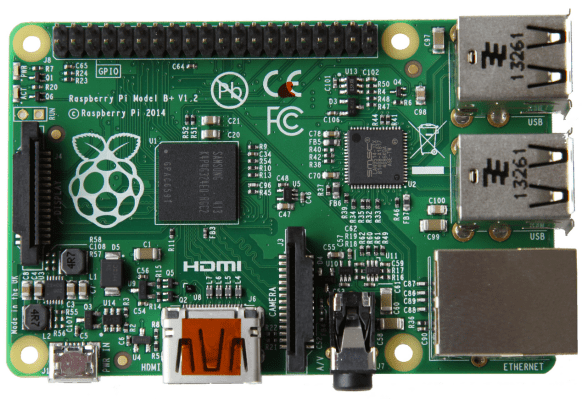The Raspberry Pi microcomputer has been a stunning success. More than 2.5 million of the low-cost Linux microcomputers have been sold in the two-plus years since the gizmo went on sale, helping to power all manner of homebrew projects.
The sales figure is especially impressive when you consider that the not-for-profit UK organization behind the device initially reckoned it would sell maybe a few thousand units over its lifetime.
Given the large community that’s built up around the Pi, there have inevitably been calls for tweaks to the design to incorporate improvements that make the board more flexible and capable. And today the Pi Foundation has responded with a new model B Pi, called the B+, which beefs up aspects of the design yet keeps the same $35 price tag.
Specifically the new Pi has more USB ports (four instead of two), which also have improved hotplug and overcurrent performance; more GPIO (general purpose input/output pins) — 40 pins up from 26, but keeping the same pinout for the first 26 pins so existing projects will still work — to accommodate more peripheral components (such as LEDs); a Micro SD card slot replacing the prior SD card socket and taking up less space on the board; lower power consumption; improved audio performance; and a neater form factor with USB ports aligned at the edge of the board, composite video moved onto the 3.5mm jack, and four mounting holes positioned to make it easier to fix the Pi in place.
In a video introducing the new model B+, the Pi Foundation’s Eben Upton stresses that the B+ is not the next generation of Pi — but rather the final upgrade of the original design. So presumably we can expect even more from a Raspberry Pi 2 if/when that lands.
The model B+ Pi is on sale now, via the Foundation’s usual distributors (in the UK that’s element 14 and RS Components.)
